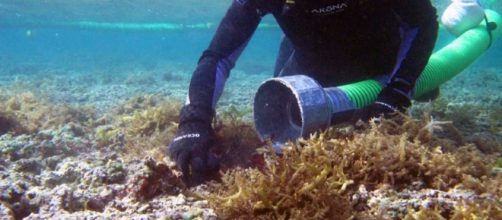Beyond the traditional threats, Coral Reefs are at risk of damage from land-based viruses, bacteria, and fungi. The study is published yesterday in the journal “Applied and Environmental Microbiology.” The research estimates that 75% coral reefs are currently threatened, and many have been lost. Even some remote and pristine reefs are losing species. Scientist Goerge Morgan at the University of Minnesota says it is important to preserve reefs as they form the most diverse ecosystems on Earth.
Threats to coral reefs
Morgan says microbes are invading and harming coral reefs.
The study raises the possibility that microbes from different sources damage coral reefs. Many other factors also degrade coral reefs. Overfishing, fishing with cyanide and dynamite, pollution from sewage and agriculture, massive outbreaks of predatory starfish, invasive species, and sedimentation from the poor land damage their colonies. Reefs across the world are also affected by destructive fishing and exploitation to supply the coral reef wildlife trade. Fish, corals and various invertebrates serve aquarium pets or decorative items. Thus, it is important to preserve these creatures. Expert says poisons like cyanide dump into the water to stun fish. Coral reefs form some of the world's most productive ecosystems, providing complex and varied marine habitats that support a broad range of other organisms.
Thus, it is important to preserve them.
Land-based microbes
Numerous land-based fungi, viruses, and bacteria invade reefs. To identify and quantify microbes in the samples collected, Goerge used a technique called high throughput next generation DNA sequencing. He evaluated the potential contribution from microbes to the reef. He has a certain degree of confidence as the previous studies failed to find how microbes damage reefs.
The data of this research indicates that anthropogenic input sources are becoming established on reefs. It means reefs are chronically at risk of algal encroachment. Overfishing and excess nutrient supply from onshore enable algae to outcompete and kill the coral. Algae can sometimes outcompete the coral for space.
Decreased oxygen level slows down coral's calcification rate. It is now evident that turf algae, coralline algae, and macroalgae damage coral reefs at a large scale.
Researcher's next step is to prove that specific bacteria directly contribute to the thermal tolerance of the host.

